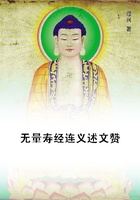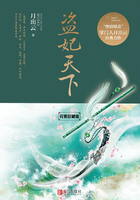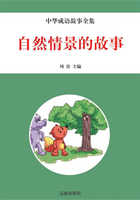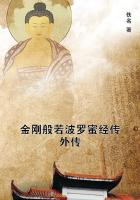But, on the other hand, can there be talk of constraint where there is no compulsion to obey an extern; and how can any movement towards a good be counted compulsion? Effort is free once it is towards a fully recognised good; the involuntary is, precisely, motion away from a good and towards the enforced, towards something not recognised as a good; servitude lies in being powerless to move towards one's good, being debarred from the preferred path in a menial obedience.Hence the shame of slavedom is incurred not when one is held from the hurtful but when the personal good must be yielded in favour of another's.
Further, this objected obedience to the characteristic nature would imply a duality, master and mastered; but an undivided Principle, a simplex Activity, where there can be no difference of potentiality and act, must be free; there can be no thought of "action according to the nature," in the sense of any distinction between the being and its efficiency, there where being and act are identical.
Where act is performed neither because of another nor at another's will, there surely is freedom.Freedom may of course be an inappropriate term: there is something greater here: it is self-disposal in the sense, only, that there is no disposal by the extern, no outside master over the act.
In a principle, act and essence must be free.No doubt Intellectual-Principle itself is to be referred to a yet higher; but this higher is not extern to it; Intellectual-Principle is within the Good; possessing its own good in virtue of that indwelling, much more will it possess freedom and self-disposal which are sought only for the sake of the good.Acting towards the good, it must all the more possess self-disposal for by that Act it is directed towards the Principle from which it proceeds, and this its act is self-centred and must entail its very greatest good.
5.Are we, however, to make freedom and self-disposal exclusive to Intellectual-Principle as engaged in its characteristic Act, Intellectual-Principle unassociated, or do they belong also to soul acting under that guidance and performing act of virtue?
If freedom is to be allowed to soul in its Act, it certainly cannot be allowed in regard to issue, for we are not master of events:
if in regard to fine conduct and all inspired by Intellectual-Principle, that may very well be freedom; but is the freedom ours?
Because there is war, we perform some brave feat; how is that our free act since had there been no war it could not have been performed? So in all cases of fine conduct; there is always some impinging event leading out our quality to show itself in this or that act.And suppose virtue itself given the choice whether to find occasion for its exercise- war evoking courage; wrong, so that it may establish justice and good order; poverty that it may show independence- or to remain inactive, everything going well, it would choose the peace of inaction, nothing calling for its intervention, just as a physician like Hippocrates would prefer no one to stand in need of his skill.
If thus virtue whose manifestation requires action becomes inevitably a collaborator under compulsion, how can it have untrammelled self-disposal?
Should we, perhaps, distinguish between compulsion in the act and freedom in the preceding will and reasoning?
But in setting freedom in those preceding functions, we imply that virtue has a freedom and self-disposal apart from all act; then we must state what is the reality of the self-disposal attributed to virtue as state or disposition.Are we to put it that virtue comes in to restore the disordered soul, taming passions and appetites? In what sense, at that, can we hold our goodness to be our own free act, our fine conduct to be uncompelled? In that we will and adopt, in that this entry of virtue prepares freedom and self-disposal, ending our slavery to the masters we have been obeying.If then virtue is, as it were, a second Intellectual-Principle, and heightens the soul to Intellectual quality, then, once more, our freedom is found to lie not in act but in Intellectual-Principle immune from act.
6.How then did we come to place freedom in the will when we made out free action to be that produced- or as we also indicated, suppressed- at the dictate of will?
If what we have been saying is true and our former statement is consistent with it, the case must stand thus:
Virtue and Intellectual-Principle are sovereign and must be held the sole foundation of our self-disposal and freedom; both then are free; Intellectual-Principle is self-confined: Virtue, in its government of the soul which it seeks to lift into goodness, would wish to be free; in so far as it does so it is free and confers freedom; but inevitably experiences and actions are forced upon it by its governance: these it has not planned for, yet when they do arise it will watch still for its sovereignty calling these also to judgement.Virtue does not follow upon occurrences as a saver of the emperilled; at its discretion it sacrifices a man; it may decree the jettison of life, means, children, country even; it looks to its own high aim and not to the safeguarding of anything lower.Thus our freedom of act, our self-disposal, must be referred not to the doing, not to the external thing done but to the inner activity, to the Intellection, to virtue's own vision.
So understood, virtue is a mode of Intellectual-Principle, a mode not involving any of the emotions or passions controlled by its reasonings, since such experiences, amenable to morality and discipline, touch closely- we read- on body.




